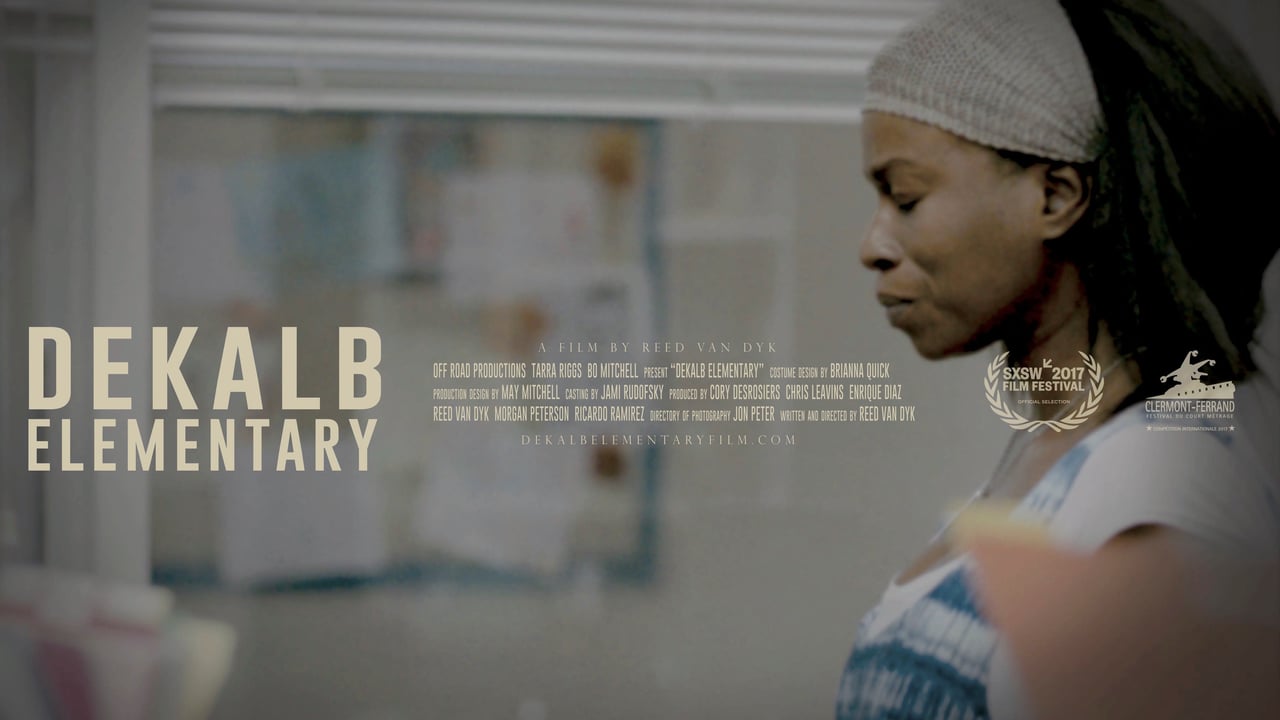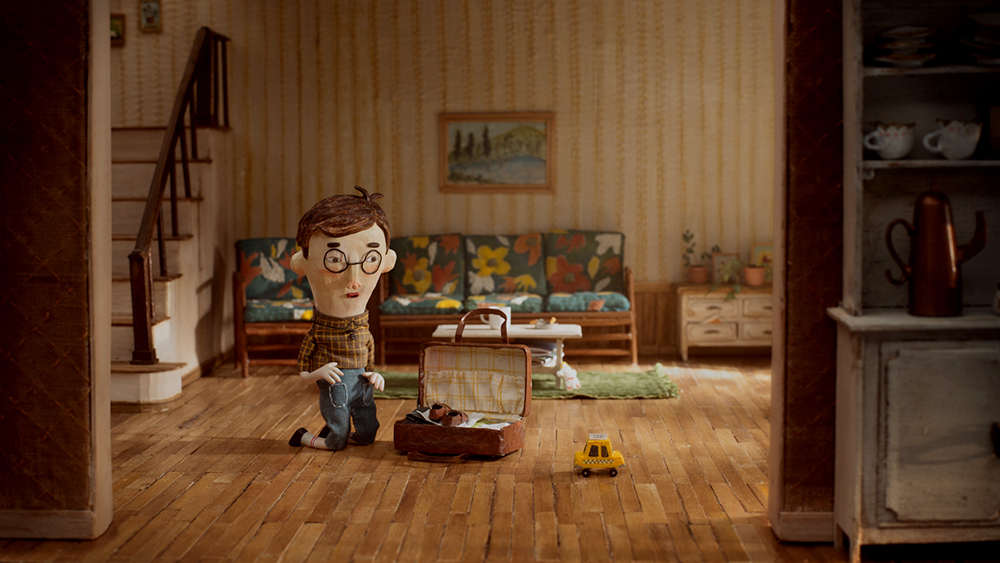A look at Oscar Shorts 2018
Exclusive to MeierMovies, February 16, 2018
The best cinematic experience one can have in February is watching the Oscar-Nominated Short Films. These three groups of films (live action, animated and documentary) – all 40 minutes or less – are shown around the country in art-house cinemas and some multiplexes. (This is the 13th year they have been presented by Shorts HD and Magnolia Pictures.)
If you live in Orlando, like I do, I suggest you check them out at Maitland’s Enzian Theater, although the cinema shows just the live-action and animated ones. (For the documentaries, you’ll have to venture farther afield, to perhaps Tampa Theatre.)
First things first: I highly recommend all three film blocks, as there’s not a dud in the bunch. But before we look at the individual shorts, let’s talk briefly about how these films are selected as the “best of the year.” In short (pun not intended), these films are NOT necessarily the best. They are simply the product of a strange system that states that films are not eligible for nomination unless they screen (for paid admission) in a commercial cinema in Los Angeles for seven consecutive days, win one of the top three awards at the Student Academy Awards competition, or take home the top prize at an Oscar-qualifying film festival.
Because prizes are limited at the Student Academy Awards competition and it’s notoriously difficult for short films to get commercial distribution (unless they are the product of a major studio, such as Disney/Pixar), that leaves the final option: the film festival. That sounds easy until you learn that there are a surprisingly small number of Oscar-qualifying festivals.
Here in Orlando, our very own Florida Film Festival is one of them. But there are fewer than 100 others around the globe. Then when one takes into account the small size of the typical judging panel, it’s likely that a short film’s eligibility could come down to the opinion of just one or two people.
Thanks to this weird process, each year there are usually far less than 200 short films eligible for an Oscar nomination in each category – out of tens of thousands of short movies screened around the world. And by the way, if you’re a student, forget about qualifying by having your film play an L.A. cinema for a week. (Student films aren’t allowed that type of qualification.)
For a list of the rules, see http://www.oscars.org/sites/oscars/files/90aa_short_films.pdf.
In the live-action block, My Nephew Emmett (3 stars on 0-5 scale) and The Silent Child (also 3 stars) have a lot to say about racial discrimination in 1950s America and the misunderstood lives and ambitions of deaf children, respectively. They just don’t always quite know how to say it, as the former film (from the United States) – despite a strong lead performance – doesn’t crackle with the type of originality and exceptionalism one expects from an Oscar nominee, and the latter (from the United Kingdom) is structured more like a snippet from a feature than a complete short. Still, it’s a strong snippet.
Watu Wote – All of Us (4 stars), from Kenya, is, surprisingly, the one foreign-language offering among all of the 15 nominated shorts. Like the previous two films, it carries a strong social message. But unlike the others, its ending delivers a powerful punch to the gut.
The Eleven o’Clock (5 stars), from Australia, is a very different type of film from the other nominees. Without a particular social or political message, it relies on its brilliant lead performances, intelligent script, dark humor and Twilight Zone feel. It’s irresistible.
But the best short of the bunch – and despite those odd, aforementioned rules, probably the best short film produced in 2017 – is DeKalb Elementary (5 stars), from the United States. A simply staged 20-minute interaction between a white male gunman (Bo Mitchell) and black female receptionist (Tarra Riggs) at a school, the film will defy your expectations and restore some of your faith in humanity. Smartly, sensitively written and directed by Reed Van Dyk, it’s based on a real 911 call and puts a unique spin on the type of potentially tragic event that has become all too familiar in recent years in America.
“I don’t know your name or nothin’,” the receptionist tells the shooter after sensing his vulnerability, mental distress and profound regret. “But I want you to know that I love you and I’m proud of you.”
You won’t find a better line in any 2017 film – short or feature.
The animated films are just as memorable. Despite getting most of the press, Kobe Bryant’s Dear Basketball (3 stars) – directed and lovingly hand-drawn by Disney legend Glen Keane, and scored by John Williams – is the least impressive. Speaking of Disney, the animated category wouldn’t be complete without a Pixar entry, and although Lou (4 stars) – a unique look at a schoolyard bully who learns the value of kindness – isn’t the best the company has given us recently, it will grow on you.
Revolting Rhymes (4 stars), at 29 minutes, is by far the longest offering. It’s actually part one of a feature-length cartoon that originally aired on British TV. Presented without its second half, it feels incomplete, but it’s still a clever and humorous take on classic fairy tales.
Outshining the other films are Garden Party and Negative Space, both worthy of 5 stars. The former features photographically realistic CGI and a refreshingly askew sensibility (and a lot of frogs) while the latter represents a new take on the eternal story of father and son – told through astonishing stop-motion and one of the smartest, most tender scripts in the history of animation.
Because most of the animated selections each year are very short, three or four additional films are usually added to pad out the program to a running time of about 90 minutes. These extra “highly commended” films are usually a step or two below the five nominated films in quality. And though that’s true this year for the sweet but slight Weeds (3 stars) and the well-animated but muddled Achoo (2 stars), that’s not the case for Lost Property Office (5 stars), a stunning piece of stop-motion art that explores dark and magical territory rarely trodden in animation, or in any film of just 10 minutes.
Though the animated program is unrated and contains some content that will go over the heads of young viewers, it is nevertheless recommend for children 8 years or older.
While the documentary program isn’t as strong as last year’s – when a brilliant Syrian war doc, The White Helmets, took home the Oscar – it’s still worth watching, if you have almost three hours to spare. (The program has an intermission.)
Traffic Stop (3 stars) might be the most topical of the films, as it deals with an encounter between a white, male police officer and a black woman arrested for speeding. While the dash-cam footage is emotionally scarring and parts of the film serve as an important social document, the production is a bit bloated and manipulative in its structure and scoring. (If you can’t attend the Oscar Shorts, you can still see it on HBO on February 19.)
Knife Skills (3 stars) is also socially relevant, and original, to boot. Focusing on an upscale French restaurant in Cleveland that hires ex-convicts, the film – though rather conventional in composition – reaffirms the power of forgiveness.
Continuing the profile theme of the nominees is Heaven is a Traffic Jam on the 405 (4 stars). Or perhaps it’s more appropriate to label the movie a portrait, as its memorable subject is an artist with a history of mental illness, depression and anxiety. Heroin(e) (4 stars) could be labeled a profile too, as it chronicles three female fighters on the front lines of our nation’s drug-overdose pandemic, in Huntington, West Virginia.
Though a hundred myriad elements must come together to create a masterpiece, in documentary filmmaking, it often comes down to luck. Unfortunately, the filmmaker’s good luck is often a subject’s bad. Such is the case for the best documentary of this year’s group, Edith + Eddie (5 stars), an unexpectedly intimate look at newlyweds (a black woman and a white man, both in their 90s) who are fighting to live out their lives together. Imbued with a Harlan County U.S.A. aura of “I can’t believe they filmed that,” this is a doc you won’t soon forget.
The only downside to the blocks is the addition of some extra tidbits that programmers apparently thought were necessary to jazz up the proceedings. For instance, the animated films are separated by “interval” cartoons that dumb down and detract from the overall quality, and the credits of the live-action films include sophomoric, self-indulgent clips of the filmmakers reacting to hearing their names called during the nomination announcements.
The Academy Awards will be hosted by Jimmy Kimmel on March 4. For a list of all nominees, visit https://www.oscars.org/oscars/ceremonies/2018.
© 2018 MeierMovies, LLC

